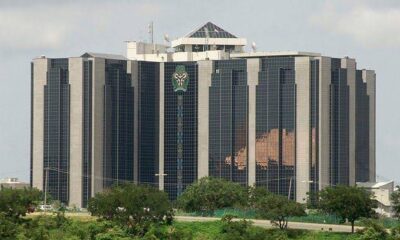Business
BREAKING: Nigeria’s Inflation Surges to 33.2% in March 2024 Despite Naira’s Rebound
Despite a rebound in the Naira, Nigeria’s inflation rate soared to 33.2% in March 2024, signaling persistent economic challenges.

Despite a rebound in the Naira, Nigeria’s inflation rate soared to 33.2% in March 2024, signaling persistent economic challenges.
This surge underscores the nation’s ongoing struggle with inflationary pressures despite currency stabilization efforts.
The economic landscape of Nigeria faced another wave of inflationary pressure as the National Bureau of Statistics (NBS) unveiled its latest Consumer Price Index (CPI) and inflation report for March 2024.
VerseNews reports that the figures revealed a worrisome uptick in inflation, with the headline rate surging to 33.2%, marking a 1.5% increase from the previous month’s 32.7% recorded in February 2024.
Analyzing the data, the NBS emphasized the stark escalation, stating, “In March 2024, the headline inflation rate increased to 33.20% relative to the February 2024 headline inflation rate which was 31.70%.” This uptick, representing a 1.5% jump, underscores the mounting pressure on the nation’s economy.
Delving into the year-on-year perspective, the report highlighted a substantial increase, with the March 2024 rate standing 11.16% points higher than the corresponding period in 2023, which recorded a rate of 22.04%. This stark contrast underscores the persistent inflationary trends gripping the economy, exacerbating concerns about economic stability and purchasing power.
Additionally, the report scrutinized the month-on-month fluctuations, revealing a slight moderation in the rate of increase. March 2024 witnessed a 3.02% rise, marginally lower by 0.10% compared to February 2024’s 3.12%. This nuanced decrease suggests a modest easing in the pace of price level escalation, albeit against a backdrop of persistently high inflation rates.
In a statement published on its official website, the Bureau emphasized the implications of these figures on consumer purchasing power and overall economic stability. The inflationary surge poses challenges for consumers grappling with higher living costs while also highlighting broader macroeconomic challenges for policymakers.
As Nigeria navigates the intricate web of inflationary pressures, policymakers face the imperative task of implementing robust measures to mitigate the adverse effects on economic stability and foster sustainable growth.
























You must be logged in to post a comment Login